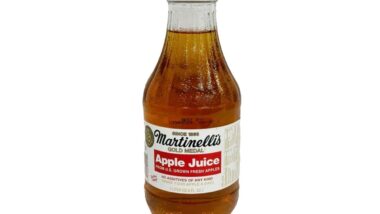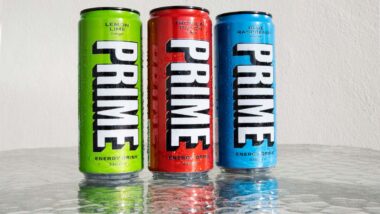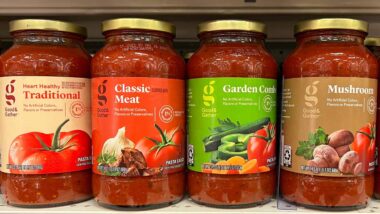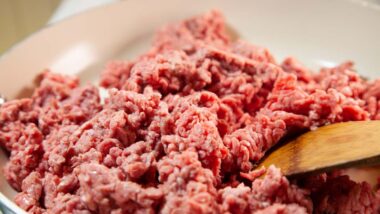Top Class Actions’s website and social media posts use affiliate links. If you make a purchase using such links, we may receive a commission, but it will not result in any additional charges to you. Please review our Affiliate Link Disclosure for more information.
Whole Foods, Amazon class action lawsuits overview:
- Who: Whole Foods and Amazon have faced several recent class action lawsuits.
- Why: Claims against Whole Foods and Amazon include improper labeling and improper pricing, among other things.
- Where: The Amazon and Whole Foods lawsuits are nationwide.
A number of complaints involving Whole Foods and Amazon have been in the headlines recently with class action lawsuit claims revolving around improper labeling and allegedly contaminated products, among other things.
Whole Foods is a popular supermarket chain that purports to sell food products that don’t contain any artificial colors, flavors, preservatives or hydrogenated fats.
Whole Foods lawsuit alleges coffee creamer not flavored with natural vanilla
Last month, a federal judge in California ruled a class action lawsuit accusing Whole Foods of tricking its customers into believing its 365 Everyday Value brand coffee creamer is flavored with natural vanilla could proceed.
The consumer behind the Whole Food class action claims the 365 Everyday Value brand coffee creamer is flavored with ethyl vanillin, despite being labeled as “Vanilla” and “Naturally Flavored.”
Whole Foods argued the testing done by the plaintiff to necessitate the class action lawsuit could not be properly reviewed by the court.
The judge overseeing the complaint disagreed with Whole Foods, however, ruling instead it was possible the product contained non-natural vanilla flavoring without having to consider the testing process.
Whole Foods beats claims it underfilled Everyday 365-brand rice pilaf
Earlier this month, a class action lawsuit accusing Whole Foods of underfilling boxes of its Everyday 365-brand rice pilaf product was dismissed by a federal judge in Illinois.
The judge overseeing the complaint determined Whole Foods had not been dishonest about the serving size of the rice pilaf product because it was based on the cooked food item.
Further, the judge ruled a reasonable consumer would know the rice pilaf product would expand once cooked in water, making the size of the box irrelevant to an expected serving size.
The consumer who filed the class action lawsuit against Whole Foods argued the boxes for its Everyday 365-brand rice pilaf product were less than half full and there was no justification for the alleged underfilling.
Whole Foods website allegedly inaccessible to blind, visually impaired
Whole Foods also faced a class action lawsuit back in May that argued the company has failed to make its website fully accessible for individuals who are blind or visually impaired.
The consumer behind the Whole Foods lawsuit claimed the company violates the Americans with Disabilities Act (ADA) by allegedly not constructing a website that is compatible with screen reading software used by individuals who are blind or visually impaired.
Whole Foods is accused of having numerous access barriers on its website that effectively prevents individuals who are blind or visually impaired from being able to have equal access to it.
Access barriers on the Whole Foods website include an absence of alternative text, broken links, duplicate titles and lack of labels, among other things, the Whole Foods lawsuit alleges.
Whole Foods lawsuit claims retailer falsely advertises antibiotic-free beef
Earlier this month, Whole Foods faced a lawsuit claiming it lies to customers by saying its beef products are “antibiotic-free,” when independent testing allegedly found traces of antibiotics in the meat.
Plaintiffs Sara Safari, Peymon Khaghani and Jason Rose filed the class action complaint against Whole Foods Market Inc. on Aug. 23 in a California federal court, alleging the retailer markets its beef with the slogan, “No Antibiotics, Ever.”
However, they claim, independent testing recently found that beef sold by Whole Foods contained antibiotics and other pharmaceutical residue.
Whole Foods health alert says retailer sold potentially contaminated ground beef products
Also in May, the U.S. Food Safety Inspection Service (FSIS) issued a public health alert that involved certain Good Rancher brand ground beef products sold at Whole Foods.
The FSIS issued the public health alert over concerns the Good Rancher ground beef product could be contaminated with hard plastic.
Whole Foods sold a number of the potentially contaminated Good Rancher ground beef products, which were not subject to a recall because they were no longer available for purchase.
Good Rancher discovered the potential hard plastic contamination following several complaints from consumers who reported they had found rigid, hard plastic inside of the ground beef products.
Amazon should have lowered Prime subscription price after discontinuing free Whole Foods delivery, lawsuit says
Amazon has been involved in several consumer complaints targeting Whole Foods.
A pair of consumers filed a class action lawsuit against Amazon in June over claims the company should have decreased the price for its Amazon Prime subscription after it discontinued its free Whole Foods delivery benefit.
The consumer argued free delivery from Whole Foods was one of the main benefits of an Amazon Prime membership and that Amazon should have reduced the cost of a subscription since it canceled the service.
“Hundreds of thousands, if not millions, of Amazon Prime members paid for a membership because they wanted to take advantage of Prime’s free Whole Foods delivery service,” the Amazon Prime class action states.
Amazon, Whole Foods knowingly sold spices containing dangerous heavy metals
Earlier this month, meanwhile, a consumer accused Amazon and Whole Foods of selling 365-brand spices that contained dangerous heavy metals.
The consumer behind the class action lawsuit argues Amazon and Whole Foods know the spices contain dangerous heavy metals, such as cadmium, arsenic and lead, yet continue to sell the product.
Further, the consumer claims in the lawsuit, Amazon and Whole Foods fail to disclose to consumers that the spice products, including 365-brand basil, ground ginger and cumin, contain dangerous heavy metals.
Have you purchased any of the products or services involved in the Whole Foods lawsuits? Let us know in the comments!
Don’t Miss Out!
Check out our list of Class Action Lawsuits and Class Action Settlements you may qualify to join!
Read About More Class Action Lawsuits & Class Action Settlements:
- Cash App, Block class action claims data breach exposed data of 8.2 million users
- American Express class action alleges company illegally favors Black employees
- Biden to provide student loan relief to those who make less than $125,000, extends payment freeze
- Video game console companies, gaming app makers face class action lawsuits















380 thoughts onWhole Foods, Amazon face class action lawsuit claims over products, services
Add me please